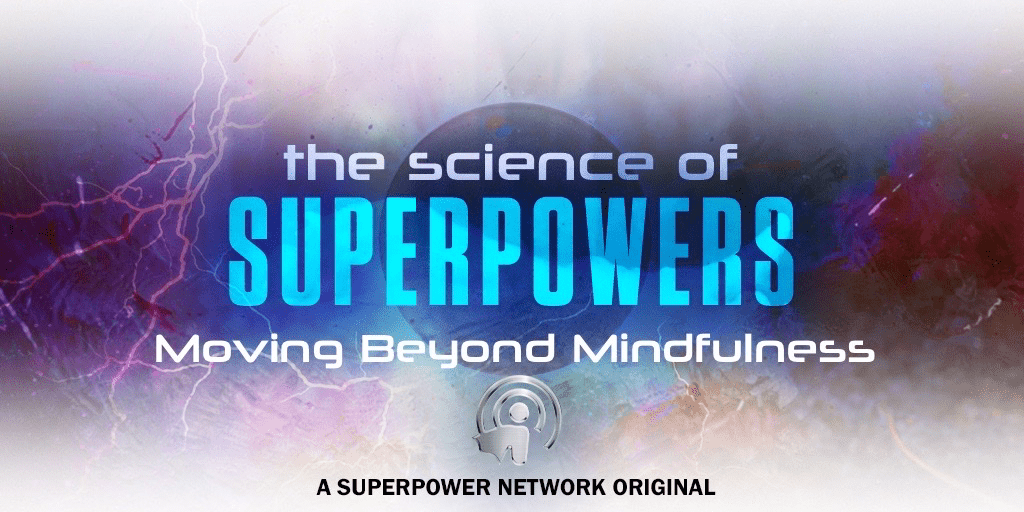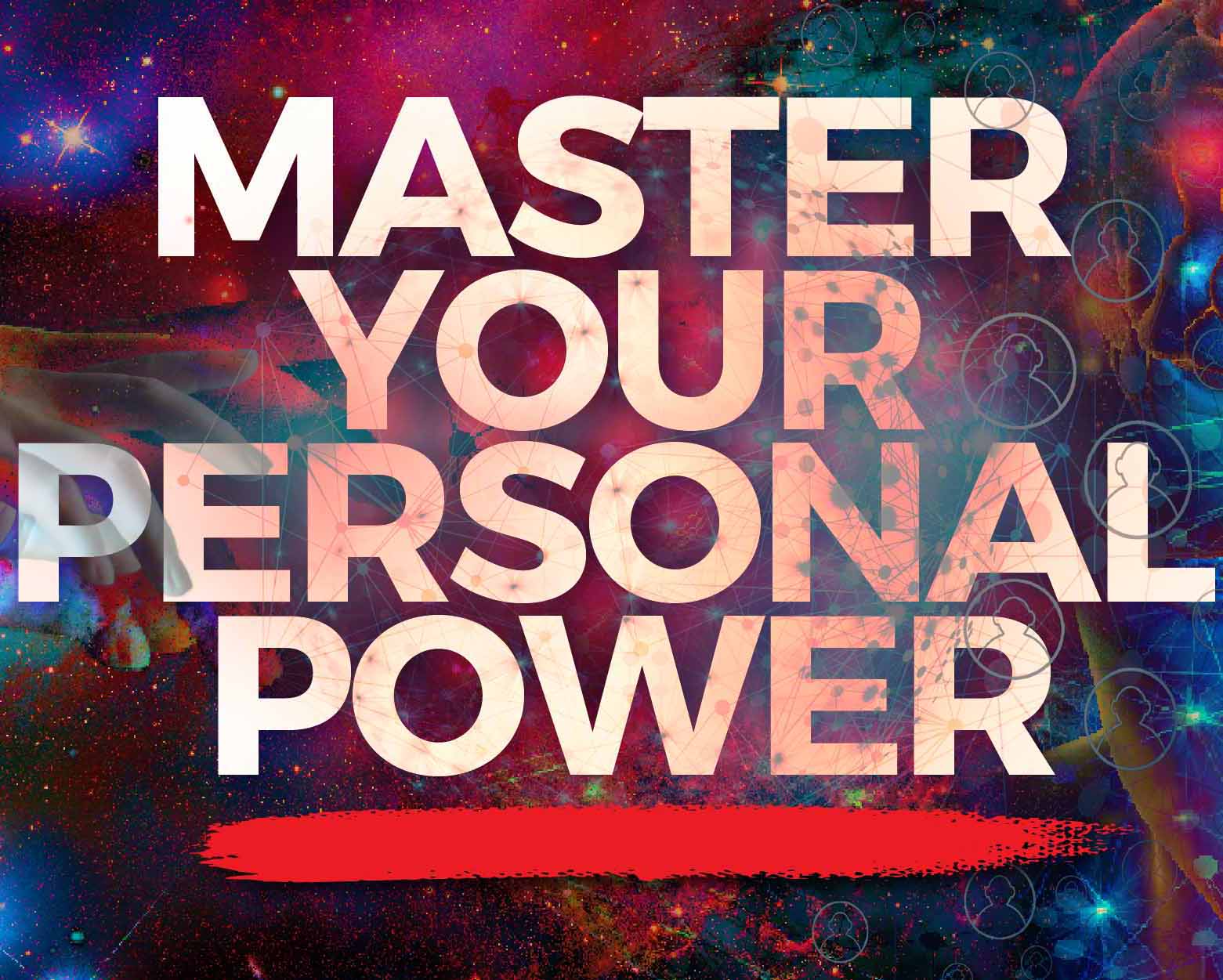
Hello, everyone. I’m so excited that you’ve chosen to join us again here at the Science of SuperPowers. That this has been such an amazing show from launch, actually way before launching with the book, and everything that poured through in 2017. Anyway, there’s so much in this space that is incredibly yummy, and I know you’re feeling it and I appreciate the feedback. Thank you so much for being part of this experience with us. And today it is a very yummy experience for you all. You have the extreme honor of getting to witness someone who’s just lighting up the world in her way, and her space, with her people in her, construct. And it just emanates out from there. And as she came across my desk as a potential guest, it was just this really beautiful, like yes.
And of course, the exchange thus far has been exactly that. So you’re going to get the feeling that, I know you’re already feeling it, right, that you all have superpowers. You’re feeling the fact that when two of us come together, truthfully, and then when we choose to be real and authentic with each other, it’s kind of like where two or more of you gathered my name, there also will I be. There is a divine essence that is exponential and I can not overstate the importance of learning how to tap into that, learning how to create with it, learning how to be in it, learning how to sit in it with others, learning how to invite others into it, all of that. Because it truly is the only space that we create in, where we create something real that has the potentiality of actualizing in a way that continues in an expansive evolutionary capacity that creates win-win-win solutions for all of us.
To spend our time doing anything else is kind of pointless at this stage. And so many of you are feeling that, and I really invite you right now to just take that deep breath, sit in this container with us and feel what happens when we come together and just talk and share and willingly and courageously explore the fact that there are spaces we don’t understand, their potentialities that we can’t even fathom. And that’s a good thing. That’s what we want. We want to be enthusiastic about life and our guest today, Thais Gibson. Anyway, she’s very yummy. You’re going to get to hear from her in just a second. And she’s touching the world in so many amazing ways. She runs the Personal Development School and is teaching so many people how to put these concepts into motion, how to use them in their lives. We’re going to talk with her today about moving beyond mindfulness.
She’s got a depth of wisdom in this area. And so for those of you who, you’ve been successful, you’ve got a pretty good life, but it’s just this something’s missing, right? You want something more. And a lot of times what we find, there are folks who are kind of stuck in this like, “I know, I know, I know, I know. I know all this.” Right? Well, then implement it, integrate it, embody it, use it, do something, change something, right? Because if you’re sitting there miserable, but you’re not taking action towards something different, it’s really silly to expect that it’s going to change. And so we’re going to talk today about how to kind of move beyond that piece, into really embodying this consciousness movement. So without further ado, please join me in welcoming Thais to the show. Hello, love.
Thank you so much for having me. I’m honored to be here with you today, and you’re such a beautiful and inspiring person to speak with.
Well, that’s delightful to hear. Thank you so much for the reflection. And of course, that’s reflected, right? We get to just relish in that together. We’re going to jump in here and just start by asking you, what are your superpowers and how are you using them for good?
I would say my first superpower is definitely my ability to be compassionate with people. It was a huge part of my own learning journey, as I was going through a lot of healing from my own childhood. And I realized that a lot of the system that I went through, like our system of classical conditioning that we’re all exposed to, the system of punishment and reward, that in my internal dialogue all the time, I was sort of repeating in relationship to self, like punishing for myself for mistakes and beating myself up for them. And as I went through a lot of personal struggles with addiction at 14 years of age, and sort of went through a seven-year struggle there, a huge part of coming out of that and healing was actually learning to shift and realize, okay, these patterns of how I was spoken to as a child from my parents, I sort of internalized them and that’d become my own internal dialogue.
And sort of being able to dis-identify from that and watch that and realize, “Wow, I really need to be compassionate” is actually a huge shift that allowed me to then take all that real estate in my mind and open it up to use for creative purposes, for healing purposes, for being able to be connected to people better. And then I would say that brings me to my second superpower, which is probably my ability to be present with other people. And to always sort of be this lifelong learner in those experiences. I would say those are my major superpowers for sure.
Well, I love that because juxtaposed really, if we look at biblical guidance, which I’m most averse in, but real spiritual guidance across the board, most agree upon some centralized theme of love, come from love and love others, right? Biblically, it’s loving God and then loves each other. There are these themes that run throughout that say first, we have to be willing to look at that internal gain that you’re speaking to and find light in it, find love in it, find something else in it. And then secondly, we have to be willing to extend that to others. And we call it the inside-out game. And it’s the idea of, we get to use the internal and the external to shift things very rapidly.
It’s about how we’re seeing so many tremendous gains in our clients because when we’re willing to work both ends essentially, reprogram what’s been programmed, but also change the behaviors moving forward, refusing to continue to create from that exact place. And we find most programs kind of do one or the other, but you really have to do both. And so I love that you spoke, you kind of book-ended it like, this is it, folks. This is the game. You have to be willing to change who you are if you want to change the world. And you have to be willing to let the world change if you really want to change who you are. We can’t just look at one. Let’s just dive into that because you’re bubbling up, talk to me about your experiences with clients and with yourself.
I just love that you said that because one of the things I often teach people, and it’s so funny how you’ll hear things from different perspectives and they’re so aligned, but one of the things I teach people is when we look at trauma, for example, from childhood, and let’s say somebody is wanting to make a big shift in their business, but they have this belief about themselves, like “I’m a failure or I’m undeserving, or my needs don’t matter. I can’t speak up,” or whatever beliefs we acquire because of past imprints as with how we’re socialized. I always say to people, “It comes in two forms. The only way we experience some kind of block is because we either have emotional pain or emotional suffering.” And emotional pain takes place whenever we have unmet needs. And technically that’s the good thing, right?
Because historically, if we had pain, hunger pains, okay, good, you’re supposed to adapt and evolve and go seek food. Pain is a feedback system. And then we have suffering, which is the story we tell about the pain. Maybe we have an unmet need, an unmet need during quarantine. It’s like, you feel isolated, you have an unmet need for connection. But then you tell the story that it’s because I’m unworthy, I’m going to be alone forever. And so what’s really interesting about those things is when we can learn that emotions are only ever a feedback system, and they’re telling you about those two specific things, what we can then do is we can sort of shift out of that and go, “Okay, so what’s my pain or my suffering? How can I change the way I’m thinking about myself for the situation to empower myself and how many strategize on behalf of whatever the unmet need is?”
And when people look at these old imprints they have trauma from years and years ago, they often look and they say, “Oh, when I was eight years old, something happened” and maybe they’re 50 years old now, and this block is still there. And we have to ask ourselves, how is this thing still affecting me? Potentially 42 years later. And the answer can only be that we’ve been firing and wiring those same neural pathways and the relationship to ourselves over and over again on autopilot. And so we either have to meet the needs that have been inherently unmet for so long that created a painful imprint, or we have to change our thinking about situations in relationship to ourselves so that we’re uprooting that imprint. And it’s so connected to what you just said, that sort of just explained it in a different form.
I’m laughing because of the shadow elements that we really should have kept us apart. There’s no hope for anything to stay stuck right now because we say the same thing. If you can tell the story, you’re already past it. If you know the story, you’re not in the story, you’re telling the story. Stop telling the story, right? And I think, especially in the developmental space, that we have this real toxic addiction to continuing to process what’s been processed. And now it’s just a crutch. For sure when you first come on it and it’s like, Whoa, ouch, right? Like that was in there. That kind of sucks.
But that’s just the echo, right? Just move the energy, right? Emotion. We need to take a break. There’s no way we’re going to count. This is going to go on forever. We just opened up all kinds of wormholes folks that you are so honored to take part in. Stay with us here, we’re going to take a quick break. Before we do, where can people go to find out more about you?
They can go to either our YouTube channel, which is Personal Development School Thais Gibson, or personaldevelopmentschool.com, where we have all of our courses and information and all that good stuff.
Brilliant. Folks, while you are listening to it, and I really recommend that you go and check out her stuff. Thais Gibson, Moving Beyond Mindfulness here on the Science of SuperPowers. We’ll be right back after this break, stay with us.
To listen to the entire show click on the player above or go to the SuperPower Up! podcast on iTunes.
Podcast: Play in new window





